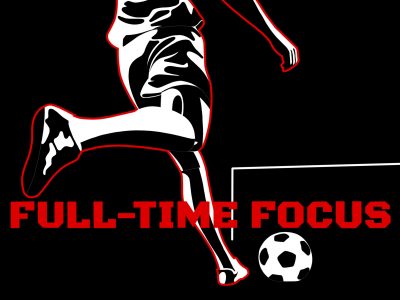Even in an environment where sports have been transformed into global, multi-billion dollar industries, football is full of romantics.

Manchester United legend Eric Cantona said it back in 2009: “You can change your wife, your politics, your religion, but never, never can you change your favorite football team.”
The beauty of the sport is amplified when the Champions League is on. Matchday 2 of the new league phase is taking place this week. Games like yesterday’s Arsenal vs. Paris Saint-Germain or today’s Benfica vs. Atlético Madrid feature players of great caliber on every side and deserve attention for the high-quality football they promise.
This week’s focus is on Dortmund, however.
On Oct. 1, Celtic lost 7-1 against Borussia Dortmund. The high-intensity game was clearly a celebration for the Germans, whose attacks paid off. As exciting as it is for any fan to watch a match full of goals, scoring wasn’t the highlight of the game.
The special aspect of watching Borussia Dortmund play at home? The fans.
Westfalenstadion, now known as Signal Iduna Park, holds 81,365 fans and is the largest football stadium in Germany. For any other fanbase, filling so many seats game after game might be difficult –– but not for the Südtribüne, or the “Yellow Wall.”
The Südtribüne, with a capacity of 24,454, is the largest standing terrace in European football. Known for its electrifying atmosphere, it has earned the nickname “Die Gelbe Wand,” which literally translates to The Yellow Wall.
Beyond showing their passionate support for the team, the fans have used banners and chants to convey powerful messages. These displays range from anti-racism statements to tributes for departing players.
This Tuesday, Dortmund’s fans took it a step further by directing their protest against UEFA.
Right before the game, Borussia Dortmund fans made their opposition to Champions League reforms clear with a huge tifo displaying the words, “UEFA MAFIA.” A banner below it read, “You don’t care about the sport — all you care about is money!” Another one above showed a link leading to a website protesting Champions League reforms.
So why does this act of defiance symbolize such a big step for the so-called “football romantics”?
The UEFA has been under fire with several accusations of corruption and money-hungry behavior for years now. Since 2018, the highest levels of football have been stricken with on-going investigations into bribery, money-laundering and even organized crime.
The European Super League, created in 2021 by 12 of the top clubs, was an attempt to combat this way of managing modern football. Obviously, it did not end well. The UEFA have made themselves indispensable to intercontinental competitions, and this has only been reinforced by the format change.
Football fans are the only ones that can rebel against the institution without risking the club’s well-being. By choosing to display that banner during a Champions League match, Dortmund supporters sent a clear message: There is a part of the sport that no administration, regardless of wealth, can control — the fans.
UEFA has played a significant role in globalizing football by expanding its competitions, increasing media rights deals and securing luxurious sponsorships. However, this has resulted in over-commercialization, a widening financial gap amongst clubs and neglect of grassroots football.
This week’s Champions League game served as a reminder that not all fan bases are alienated from their clubs.
Dortmund is full of romantics.






















































































































